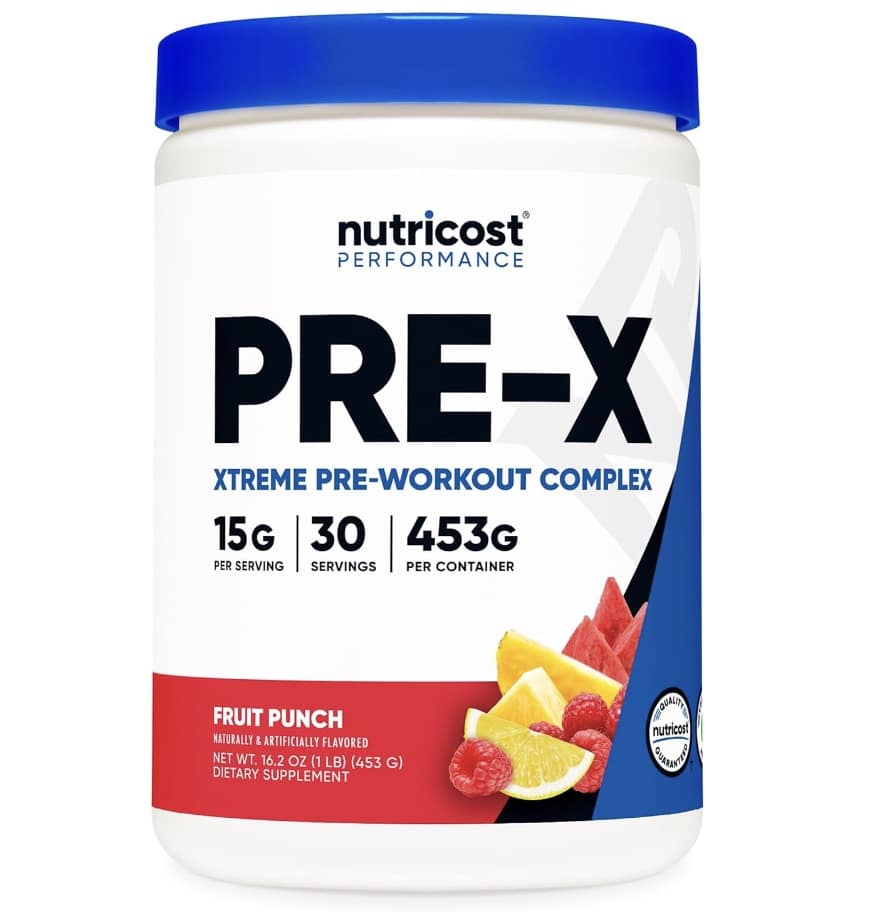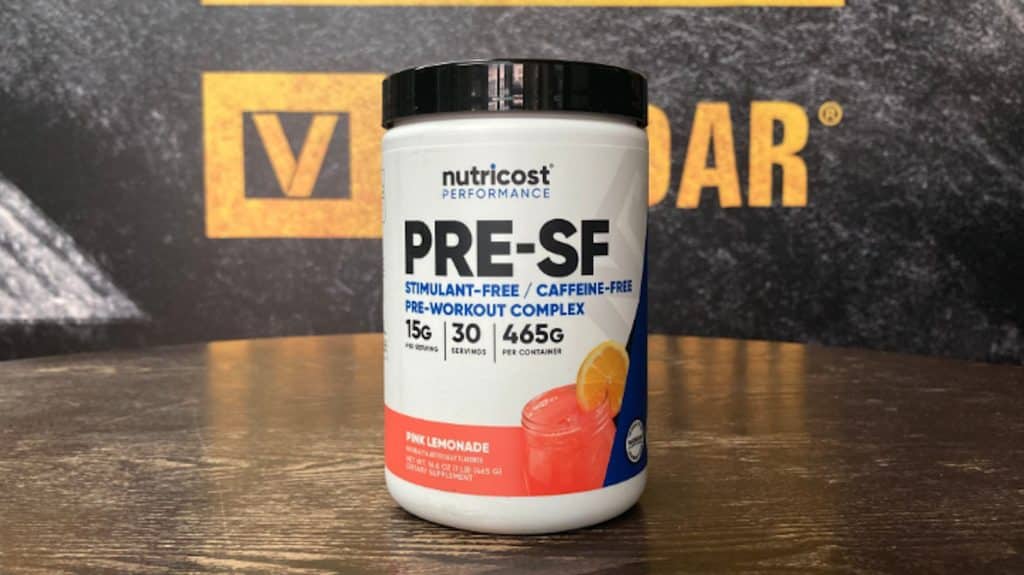Certain pre-workout supplements include creatine in their ingredients.
Bodybuilding and various fitness goals often revolve around enhancing muscle size and strength. To accomplish this, numerous athletes opt for supplements to gain a competitive advantage. Research highlights that combining protein supplements with resistance training can boost muscle mass and strength (1). Below, we’ll delve into a detailed analysis of creatine vs. pre-workout to assist you in determining which aligns best with your fitness objectives.
Selecting the appropriate supplements can be confusing due to the multitude of options and brands available. Nevertheless, when considering the creatine versus pre-workout debate, there’s no need for concern as both offer significant benefits.
What Is Creatine?
Creatine, as a substance, naturally occurs in your body and resides in your muscle cells. There, it creates high energy stores called phosphocreatine, mainly when available in excess. These stores help your body produce the high-energy molecule adenosine triphosphate, which is your body’s energy currency.
The most common form of creatine as a supplement is creatine monohydrate. It’s also the version that’s most researched for its benefits. Taking a supplement with creatine monohydrate like Nutricost Creatine is a great idea, as research shows it has no adverse side effects.
Benefits of Creatine
Creatine as a supplement helps to improve strength and enhance performance. It does this by helping your muscles produce more energy during heavy work, like resistance training. This extensive review on creatine and other popular supplements supports creatine as one of the most effective for adding muscle mass (2). Below are other benefits of taking creatine.
- It improves cell signaling, which aids with muscle repair and growth.
- Supports heart health.
- Better athletic performance (3).
- Reduces muscle breakdown and loss.
- Reduces blood sugar levels.
- Improves short-term memory and brain health (4).
What Is Pre-Workout?
Pre-workouts are supplements that give you energy for training. Different brands contain different ingredients, but the most effective vital ingredients are caffeine and beta-alanine. You can check out others in our review of the Nutricost Pre-X Extreme Pre-Workout.
A pre-workout can either be in pill or powder form and can help reduce fatigue during training. It can also help you recover more quickly after an intense workout. This study on 23 resistance-trained men showed that taking a pre-workout supplement increased their strength and power (5).
Benefits of Pre-Workout
Pre-workouts can improve your energy levels and performance. However, they can cause side effects like anxiety and a tingling sensation depending on their ingredients and your caffeine sensitivity level. You should do your research and talk to a doctor before you start taking one. With that being said, here are some of the benefits you can get from taking a pre-workout.
- Improved energy.
- Better focus.
- Boost metabolism and enhance fat loss.
- Increase in blood flow.
- Quicker recovery.
Creatine Vs. Pre-Workout: Which Is Better?
Knowing the benefits of both supplements, you might find yourself wondering, is it better to take pre-workout or creatine? Some pre-workouts contain creatine, which might tempt you to want to drop taking a creatine supplement altogether. Before you do, consider the following.
Research on creatine use shows it requires a loading phase of six days before it will affect your training and give results. That means you need to take at least 20g of creatine for six days to see a significant increase in your muscle stores, which leads to more muscle growth (6). Most pre-workouts with creatine contain only around 3g of creatine.
A better and more effective approach would be to take both pre-workouts and creatine supplements. Research shows that both go well together, with pre-workout supplements helping with fatigue and creatine helping with muscle growth (7). So, ultimately, both are separate products, and none is better than the other. For maximum benefits, we recommend taking both.
Other FAQs
Should I take creatine after or pre-workout?
Creatine is most effective as a post-workout supplement. If taken before workouts, creatine would be lost, but it quickly absorbs into the muscles after training. There, it will readily provide energy for the repair and rebuilding of your muscles.
Does creatine give you the same energy as pre-workout?
While creatine will make energy available on a cellular level, it won’t provide the same energy that a pre-workout gives. Creatine is more effective at helping you build muscle mass in the long run.
Is creatine with pre workout bad?
Mixing pre-workouts with creatine is a good idea. Creatine can help boost some of the other ingredients of pre-workout. However, taking creatine separately isn’t as effective since the dosage isn’t high enough.
Wrapping Up
Creatine and pre-workout supplements are not interchangeable, so declaring a victor in the creatine vs. pre-workout debate is not straightforward. Both are integral components of your training routine, and we advocate for their combined use. While creatine is particularly beneficial for muscle growth, a pre-workout supplement provides the necessary energy boost to enhance your performance. The synergy of creatine and pre-workouts can significantly improve your recovery process when used together.
Follow us on Instagram, Facebook, and Twitter for more supplement information!
References
- Cermak, N. M., Res, P. T., de Groot, L. C., Saris, W. H., & van Loon, L. J. (2012). Protein supplementation augments the adaptive response of skeletal muscle to resistance-type exercise training: a meta-analysis. The American journal of clinical nutrition, 96(6), 1454–1464. https://doi.org/10.3945/ajcn.112.037556
- Kreider, R. B., Kalman, D. S., Antonio, J., Ziegenfuss, T. N., Wildman, R., Collins, R., Candow, D. G., Kleiner, S. M., Almada, A. L., & Lopez, H. L. (2017). International Society of Sports Nutrition position stand: safety and efficacy of creatine supplementation in exercise, sport, and medicine. Journal of the International Society of Sports Nutrition, 14, 18. https://doi.org/10.1186/s12970-017-0173-z
- Ramírez-Campillo, R., González-Jurado, J. A., Martínez, C., Nakamura, F. Y., Peñailillo, L., Meylan, C. M., Caniuqueo, A., Cañas-Jamet, R., Moran, J., Alonso-Martínez, A. M., & Izquierdo, M. (2016). Effects of plyometric training and creatine supplementation on maximal-intensity exercise and endurance in female soccer players. Journal of science and medicine in sport, 19(8), 682–687. https://doi.org/10.1016/j.jsams.2015.10.005
- Forbes, S. C., Cordingley, D. M., Cornish, S. M., Gualano, B., Roschel, H., Ostojic, S. M., Rawson, E. S., Roy, B. D., Prokopidis, K., Giannos, P., & Candow, D. G. (2022). Effects of Creatine Supplementation on Brain Function and Health. Nutrients, 14(5), 921. https://doi.org/10.3390/nu14050921
- Kaczka, P., Batra, A., Kubicka, K., Maciejczyk, M., Rzeszutko-Bełzowska, A., Pezdan-Śliż, I., Michałowska-Sawczyn, M., Przydział, M., Płonka, A., Cięszczyk, P., Humińska-Lisowska, K., & Zając, T. (2020). Effects of Pre-Workout Multi-Ingredient Supplement on Anaerobic Performance: Randomized Double-Blind Crossover Study. International journal of environmental research and public health, 17(21), 8262. https://doi.org/10.3390/ijerph17218262
- Hultman, E., Söderlund, K., Timmons, J. A., Cederblad, G., & Greenhaff, P. L. (1996). Muscle creatine loading in men. Journal of applied physiology (Bethesda, Md. : 1985), 81(1), 232–237. https://doi.org/10.1152/jappl.1996.81.1.232
- Stout, J. R., Cramer, J. T., Mielke, M., O’Kroy, J., Torok, D. J., & Zoeller, R. F. (2006). Effects of twenty-eight days of beta-alanine and creatine monohydrate supplementation on the physical working capacity at neuromuscular fatigue threshold. Journal of strength and conditioning research, 20(4), 928–931. https://doi.org/10.1519/R-19655.1










